Zongli Zheng
Dr. Zongli Zheng was Assistant Professor at Ming Wai Lau Centre for Reparative Medicine between 2017 and 2023.
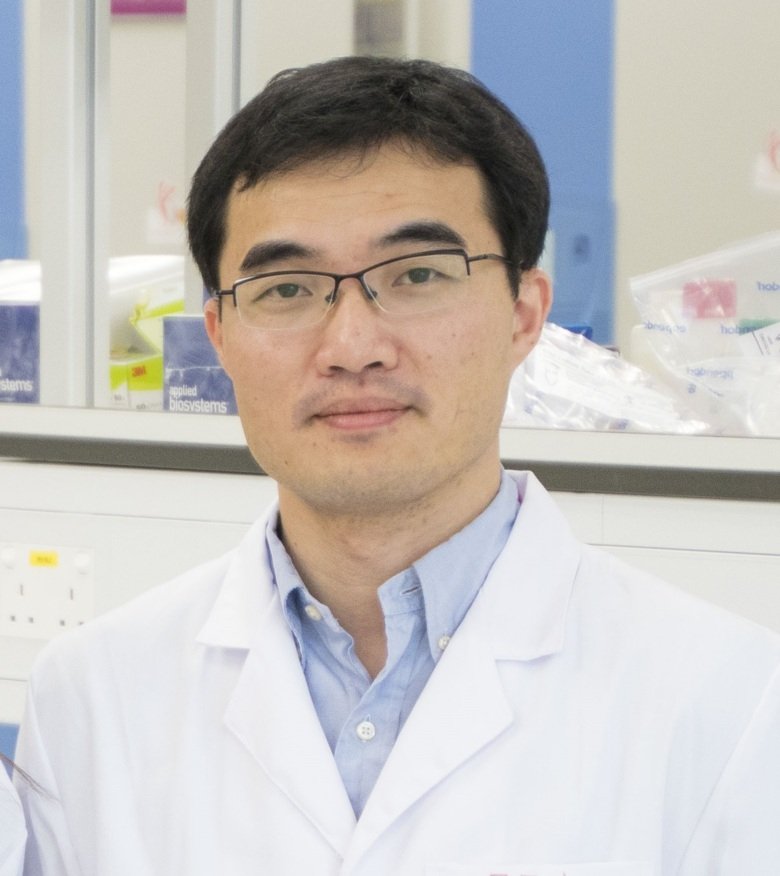
Biographical
Dr. Zheng received his PhD degree in medical epidemiology from Karolinska Institutet in 2011 and completed a postdoctoral training at Massachusetts General Hospital and Harvard Medical School in 2015, with support from the Swedish Research Council International Postdoc Fellowship.
Research
Our contribution to precision medicine includes the invention of the AMP technology that enables gene fusion discovery and, following initial clinical implementations in top US hospitals (MSK Solid Fusion, MGH NGS Fusion, etc.), has now been adopted globally for robust clinical assays for gene fusion detection to guide targeted therapy for cancer patients. We have also developed the GUIDE-seq method that has become a reference for genome-wide unbiased profiling of CRISPR edits. Currently, we focus on:
- Genome engineering – to characterize genome-wide CRISPR targeting profile and improve its genome editing precision for treating diseases rooted in altered DNA bases or chromosomal structure.
- Single-cell genomics – to develop a scalable and integrated single-cell genomic characterization platform for functional screening and identification of therapeutic targets.
Group Members
Previous lab members
- Qinle Zhang, Postdoctoral Researcher
- Siyu Bao, Research Assistant
- Athena Chu, Senior Research Assistant
- Baifeng Zhang, Research Assistant
- Chloe Bao, Research Assistant
- Jinhuan Li, Postdoctoral Researcher
- Limei Ai, Research Assistant
- Evangeline Kang, Postdoctoral Researcher
- Bang Wang, Postdoctoral Researcher
- Silvia Mak, Research Assistant
- Jan Keung, Research Officer
- Miao Yu, Research Assistant
- Maggie Chow, Research Officer
- Yee Man Chan, Senior Bioinformatician
- Furong Ju, Postdoctoral Researcher
- Weiwei Bian, Senior Research Assistant
- Shifeng Lian, Senior Research Assistant
- Qian Luo, Senior Research Assistant
- Jerry Gan, Research Assistant
- Zihua Jiang, Research Assistant
Selected Publications
Full list: Google Scholar
Song Z, Lian S, Mak S, Chow ZY, Xu C, Wang W, Keung HY, Lu C, Kebede TF, Gao Y, Cheuk W, Cho CS, Yang M, Zheng Z. (2021). Deep RNA sequencing revealed fusion junctional heterogeneity may predict crizotinib treatment efficacy in ALK-rearranged non-small cell lung cancer. Journal of Thoracic Oncology, (ePub).
https://doi.org/10.1016/j.jtho.2021.09.016
Song Z, Lu C, Xu C, Zheng Z. (2021). Noncanonical gene fusions detected at the DNA level necessitate orthogonal diagnosis methods before targeted therapy. Journal of Thoracic Oncology (2021) 16:344-348
https://doi.org/10.1016/j.jtho.2020.12.006
Tan, Y., Chu, A. H. Y., Bao, S., Hoang, D. A., Kebede, F. T., Xiong, W., Ji, M., Shi, J., & Zheng, Z. (2019). Rationally engineered Staphylococcus aureus Cas9 nucleases with high genome-wide specificity. Proceedings of the National Academy of Sciences, 116(42), 20969–20976.
https://doi.org/10.1073/pnas.1906843116
Choi, G. C. G., Zhou, P., Yuen, C. T. L., Chan, B. K. C., Xu, F., Bao, S., Chu, H. Y., Thean, D., Tan, K., Wong, K. H., Zheng, Z., & Wong, A. S. L. (2019). Combinatorial mutagenesis en masse optimizes the genome editing activities of SpCas9. Nature Methods, 16(8), 722–730.
https://doi.org/10.1038/s41592-019-0473-0
Kleinstiver, B. P., Pattanayak, V., Prew, M. S., Tsai, S. Q., Nguyen, N. T., Zheng, Z., & Joung, J. K. (2016). High-fidelity CRISPR–Cas9 nucleases with no detectable genome-wide off-target effects. Nature, 529(7587), 490–495.
https://doi.org/10.1038/nature16526
Kleinstiver, B. P., Prew, M. S., Tsai, S. Q., Nguyen, N. T., Topkar, V. V., Zheng, Z., & Joung, J. K. (2015). Broadening the targeting range of Staphylococcus aureus CRISPR-Cas9 by modifying PAM recognition. Nature Biotechnology, 33(12), 1293–1298.
https://doi.org/10.1038/nbt.3404
Tsai, S. Q., Zheng, Z., Nguyen, N. T., Liebers, M., Topkar, V. V., Thapar, V., Wyvekens, N., Khayter, C., Iafrate, A. J., Le, L. P., Aryee, M. J., & Joung, J. K. (2015). GUIDE-seq enables genome-wide profiling of off-target cleavage by CRISPR-Cas nucleases. Nature Biotechnology, 33(2), 187–197.
https://doi.org/10.1038/nbt.3117
Shaw, A. T., Ou, S.-H. I., Bang, Y.-J., Camidge, D. R., Solomon, B. J., Salgia, R., Riely, G. J., Varella-Garcia, M., Shapiro, G. I., Costa, D. B., Doebele, R. C., Le, L. P., Zheng, Z., Tan, W., Stephenson, P., Shreeve, S. M., Tye, L. M., Christensen, J. G., Wilner, K. D., … Iafrate, A. J. (2014). Crizotinib in ROS1 -Rearranged Non–Small-Cell Lung Cancer. New England Journal of Medicine, 371(21), 1963–1971.
https://doi.org/10.1056/NEJMoa1406766
Zheng, Z., Liebers, M., Zhelyazkova, B., Cao, Y., Panditi, D., Lynch, K. D., Chen, J., Robinson, H. E., Shim, H. S., Chmielecki, J., Pao, W., Engelman, J. A., Iafrate, A. J., & Le, L. P. (2014). Anchored multiplex PCR for targeted next-generation sequencing. Nature Medicine, 20(12), 1479–1484.
https://doi.org/10.1038/nm.3729
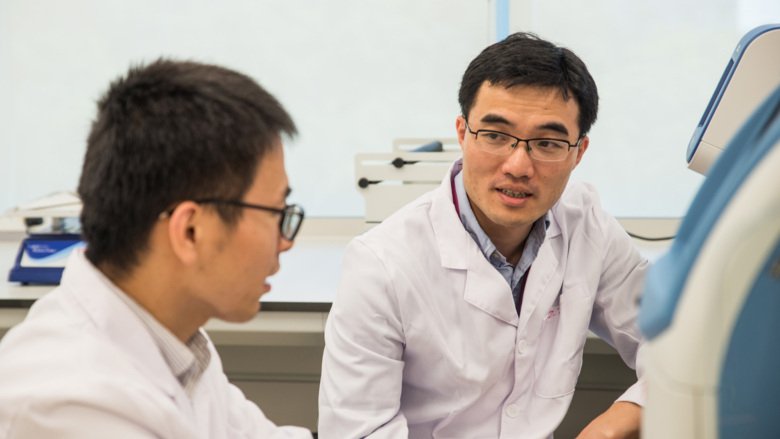 Photo: Patrick Chan
Photo: Patrick ChanZongli Zheng has a new publication in Journal of Thoracic Oncology
Half of advanced stage lung cancer patients can survive longer than seven years if their tumors are driven by ALK rearrangement and treated by ALK inhibitors, but the remaining half cannot. Zongli Zheng Lab has used deep RNA sequencing, conducted clinical and in vitro experiments to understand the reasons for the poor responses in the remaining half. The study revealed that intratumoral EML4-ALK isoforms may predict the efficacy of targeted therapy in ALK-rearranged NSCLC. Temporal changes of intratumoral fusion isoforms may result from differential selection pressures that a drug might have on one isoform over another. Future therapeutic approaches may be directed to treat alternative RNA splicing-rendered heterogeneity and tumor resistance.
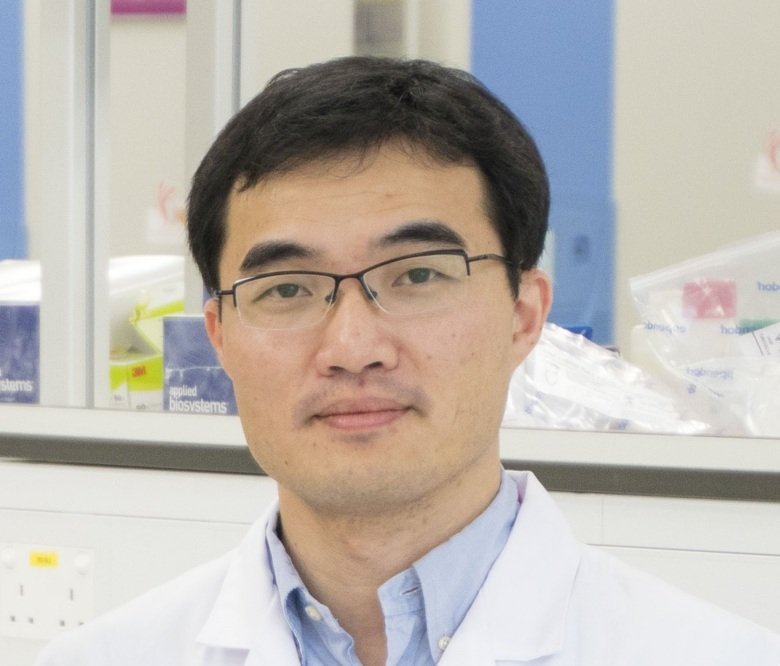 Photo: Patrick Chan
Photo: Patrick ChanZongli Zheng comments on Precision Medicine diagnosis
Liquid biopsy is becoming an important alternative to the traditional tissue-based cancer diagnosis for precision medicine. However, the increasingly reported non-canonical genetic alterations from DNA-based sequencing have raised questions on their underlying mechanisms and clinical significances. Zongli Zheng comments in an editorial in the prestigious Journal of Thoracic Oncology and calls for precision diagnosis to maximize patient benefits.
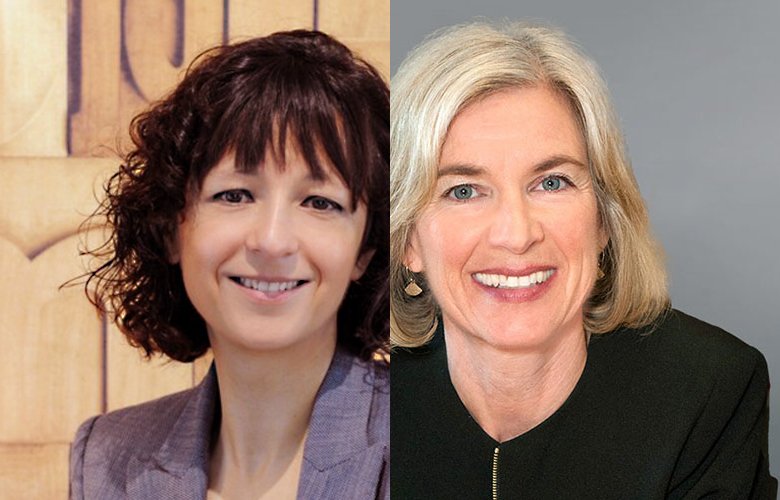 Photo: Hallbauer&Fioretti,Keegan Houser
Photo: Hallbauer&Fioretti,Keegan HouserKI researchers' excitement for the Nobel Prize in Chemistry 2020
Emmanuelle Charpentier and Jennifer A. Doudna were awarded the Nobel Prize in Chemistry 2020 for discovering one of gene technology’s sharpest tools: the CRISPR/Cas9 genetic scissors. This technology is revolutionary as it provides a quick and precise method in genome editing. Fredrik Lanner and Zongli Zheng are some of the KI researchers who use this technology in their research. Let's learn more about this powerful award-winning technology.
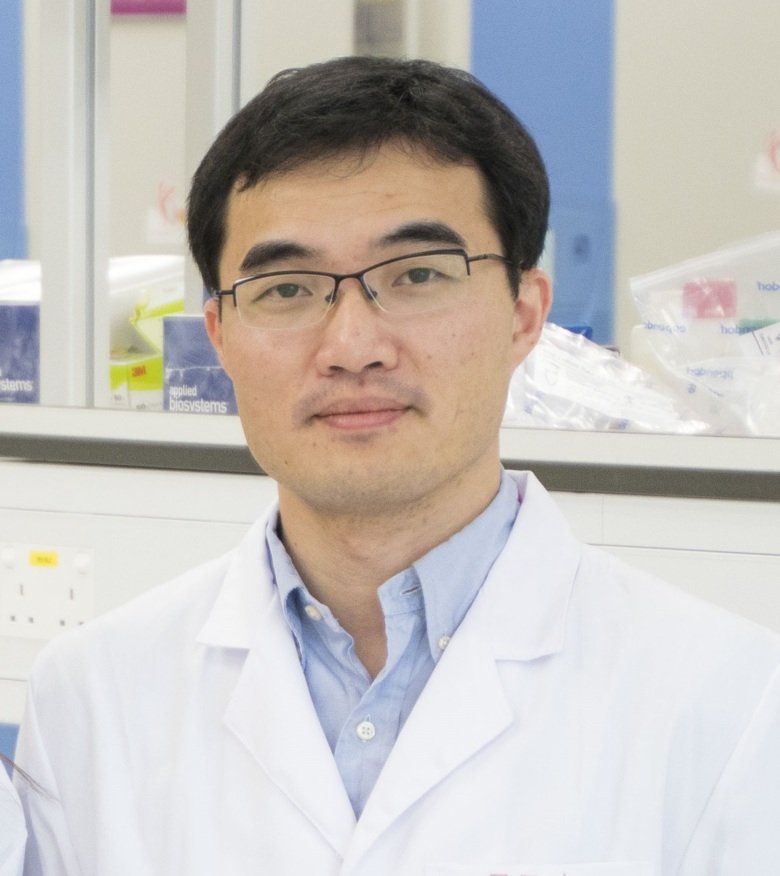 Photo: Patrick Chan
Photo: Patrick ChanZongli Zheng has a new publication in PNAS
Zongli Zheng and collaborators have developed a new variant of the gene editing technique CRISPR-Cas9 that has the potential to increase precision during gene therapy in humans. The new enzyme will be particularly useful for future gene therapy using adeno-associated viral (AAV) to deliver genome editing components in vivo.
